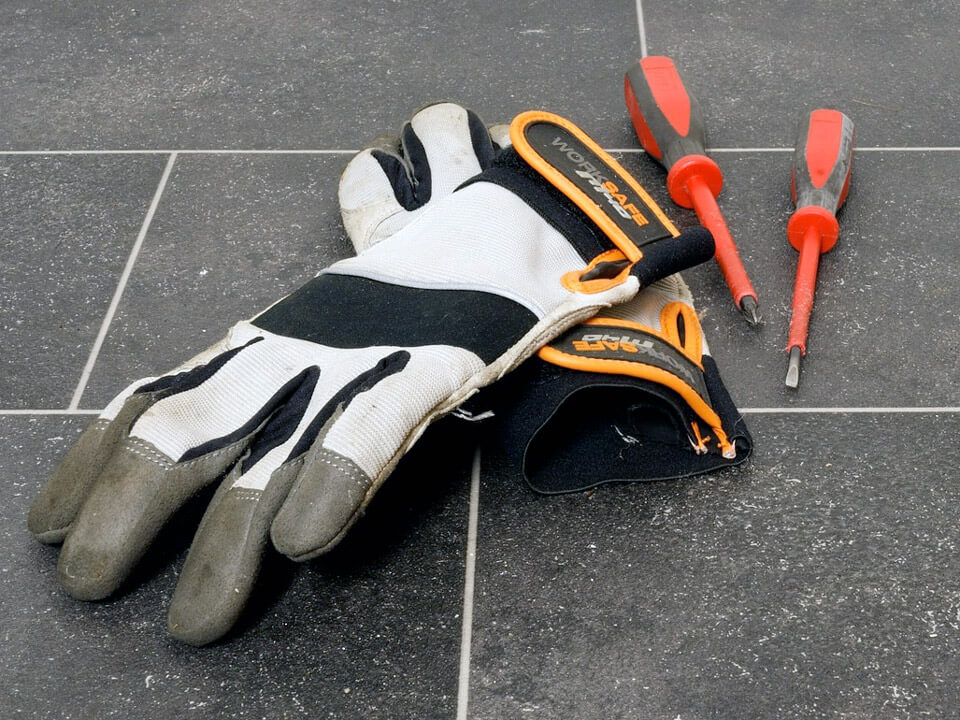Choosing the right work gloves
Work gloves are important for workers from all the many industries because they ensure the safety of their hands from injuries from workplace accidents.
 However, there are different types of gloves in the market that cater to specific needs. Before you buy a pair of gloves for yourself, you must make sure you buy the right one.
However, there are different types of gloves in the market that cater to specific needs. Before you buy a pair of gloves for yourself, you must make sure you buy the right one.
According to Occupational Safety and Health Administration (OSHA), work gloves are categorized as:
- Fabric and coated fabric gloves
- Leather, canvas or metal mesh gloves
- Chemical and liquid-resistant gloves
- Insulating rubber gloves
With so many options available in the market, you may get confused regarding what to buy. This post is just to make the choices easier for you.
Tips to keep in mind when buying your work gloves
The first step towards choosing the right work gloves is being aware of the nature of possible hazards that you might face in your workplace. So, how do you know what is right for you? Let’s make it simpler for you with the following tips.
- While dealing with light and blunt objects: Fabric and coated fabric gloves are the best option, if your work doesn’t involve dealing with rough, sharp, or heavy objects. They only provide a more basic form of hand protection from dirt, chafing, and abrasions. You can opt for plastic coated gloves for slip-resistance, but they remain a basic safety component.
- While dealing with hot/cold/sharp objects: A worker who is into material handling and product assembly is exposed to extreme heat/cold or impact penetration hazards. Such a person would require gloves that ensure safety against cuts, punctures, and abrasion. In such a scenario, leather, canvas or metal mesh gloves are the best choice. Generally, this category of gloves comprises aluminized gloves, aramid fibre gloves, and synthetic gloves.
- While dealing with toxic and hazardous chemicals: Does your work involve any chemical hazards? Would your hands be subjected to light splashes or total immersion in the chemical? These are a few basic questions you must ask before selecting your work gloves. Thicker gloves provide better protection against chemical hazards, but this is not necessarily always true. While working with toxic and hazardous chemicals, you can opt for chemical resistant gloves. Be careful of the chemical’s toxicity before you decide to reuse any gloves.
- While dealing with electrical equipment: Insulating rubber gloves are the best for those who want to be insured against electrical hazards. They protect you against any kind of electrical shocks, which can at times be life threatening!
Besides the above-mentioned tips, you must also take care of the fitting, comfort and usage of the work gloves. Irrespective of the variety, work gloves must be inspected before use for any wear and tear or other damages that could make them lose their protective qualities. In addition, it is important to buy your work gloves from a trusted and reliable manufacturer and supplier.
You also need to have some training on all aspects of the gloves such as:
- How to wear them
- How to store them
- What checks are required
- How to replace them
- How to look after them.
- You will also need to sign that you have them and that you understand the above.
Here at Chestnut Associates we are always here to support all of your H&S safety requirements – contact us today on 07770 302504 or email joanne@chestnutassociates.co.uk


